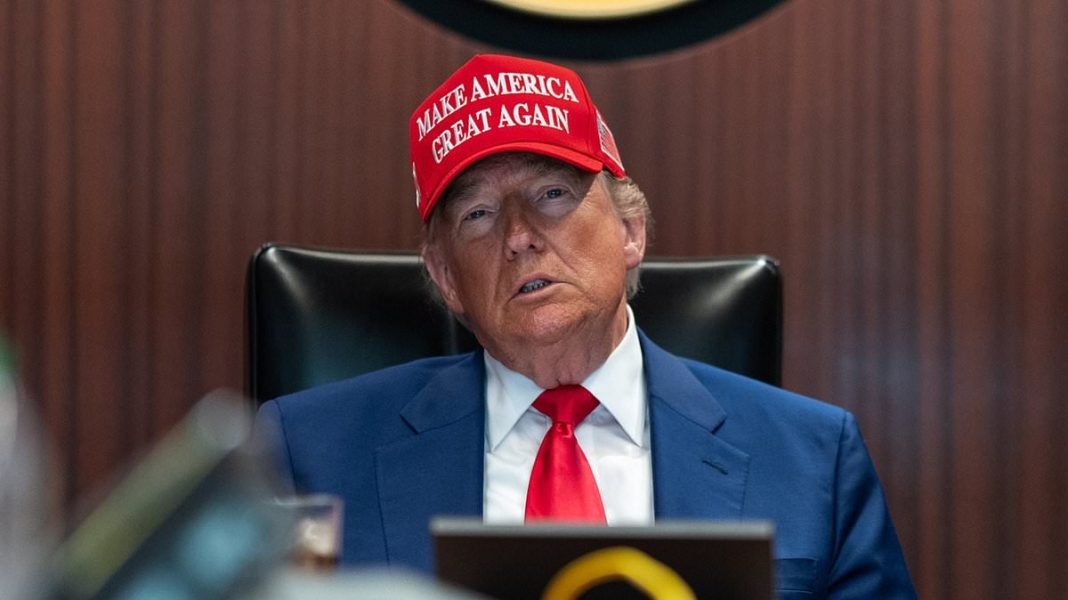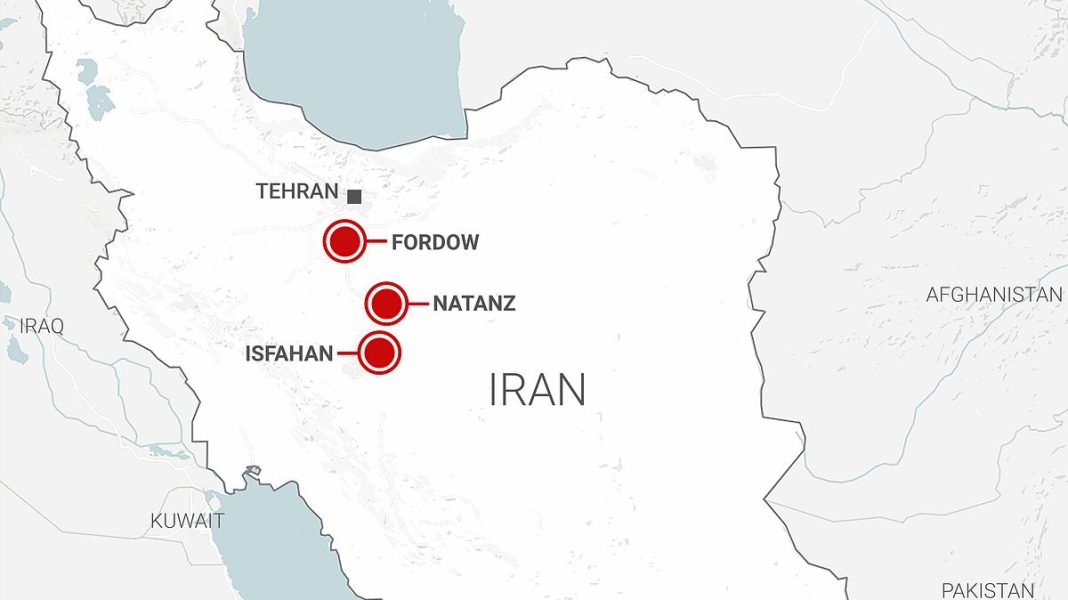The world is facing a ‘new era’ of terrorism after the US strikes on Iran, experts warned yesterday.
Donald Trump’s surprise decision to attack Tehran’s nuclear facilities – just days after the US President seemed to back away from the idea – radically increases the risk of ‘likely’ retaliation, former UK national security adviser Lord Ricketts cautioned.
While the UK was not involved in the action, the Government was informed before the strikes happened, ministers confirmed yesterday.
Despite speculation any attack could be launched from the joint UK/US airbase on Diego Garcia – where the B-2 stealth bombers used have previously been based – the mission was flown from mainland America, leaving Britain to watch on with the rest of the world after the raids took place.
Lord Ricketts said the Government would be ‘relieved’ to have been left out of the operation.
He added: ‘That would have meant that the UK would have had to take a view on the legality of this – that they avoided doing.’
The Attorney General, Lord Hermer, is understood to have advised the Prime Minister that any involvement would be illegal under international law.
But Sir Keir Starmer had still been facing tricky questions about what position to take should Mr Trump ask for permission to use Diego Garcia or call on the ‘special relationship’ for assistance in any attack.
After the bombing raids, Sir Keir said: ‘Iran’s nuclear programme is a grave threat to international security. Iran can never be allowed to develop a nuclear weapon, and the US has taken action to alleviate that threat.
‘The situation in the Middle East remains volatile and stability in the region is a priority. We call on Iran to return to the negotiating table and reach a diplomatic solution to end this crisis.’
Lord Ricketts, a crossbench peer, described the situation in the Middle East as ‘dangerous and very unpredictable’, adding that some kind of retaliation from Iran, led by its Supreme Leader Ayatollah Ali Khamenei, is ‘likely’.
He told BBC News: ‘This is a major strike against their key strategic assets and so I think we have to expect that they will tryto get back at American bases, American economic installations, possibly even America’s allies.’
And Dr Leslie Vinjamuri, of think-tank Chatham House, said the risks of Mr Trump’s strategy were ‘incalculably high’.
He added: ‘If Iran attacks US assets and especially US personnel in the region, if the US is dragged further into direct conflict, if this launches a new era of terrorism, if this leads to more rather than less stability, then the cost to a President who has staked his success on staying out of war and delivering peace will be high.’
Iran was the first foreign power to be listed on Britain’s new enhanced tier of the foreign influence registration scheme, aimed at protecting the UK from malign foreign influence.
The scheme, due to come into force in July, means anyone who is directed by Iran to carry out activities in the UK must declare it or face five years in prison.
The Home Office will also introduce new laws that will allow the UK to proscribe state-based groups such as Iran’s Islamic Revolutionary Guard Corps (IRGC).
It comes as a British man, who is alleged to have links with the IRGC, was arrested on suspicion of espionage and terrorism offences in Cyprus over the weekend.
Local media reported that he had been keeping RAF Akrotiri – the UK’s most important airbase for operations in the Middle East – under surveillance.‘Hours, not days’ before Britons trapped in Israel are evacuated






